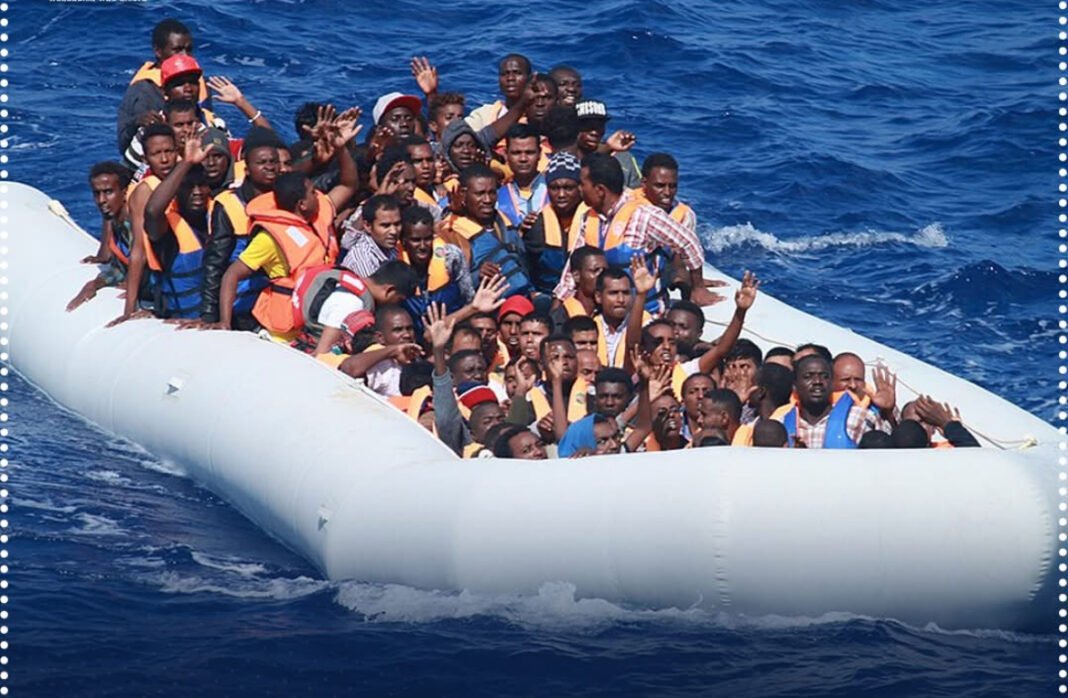By HAN News Desk
TRIPOLI — At least 42 migrants are feared dead after their boat capsized off the Libyan coast, the International Organization for Migration (IOM) reports. The vessel, carrying 49 people, set sail from the coastal town of Zuwara in north-western Libya on 3 November, attempting the dangerous journey toward Europe. The group included 29 Sudanese nationals, eight Somalis, three Cameroonians, and two Nigerians, according to the IOM.
Seven survivors were rescued and brought back to shore, but the remaining 42 are missing and presumed dead. Rescue operations were reportedly hampered by rough sea conditions and a lack of immediate response capacity along Libya’s western coast.
“This tragedy is yet another reminder of the deadly risks people are willing to take in search of safety and a better life,” said Safa Msehli, spokesperson for the IOM in Libya. “The central Mediterranean remains one of the world’s most dangerous migration routes.”
The incident marks the latest in a series of deadly shipwrecks in the Mediterranean Sea this year. According to the IOM’s Missing Migrants Project, more than 1,000 people have died or gone missing in 2025 alone while attempting to reach Europe by sea from North Africa.
Libya has long been a major departure point for migrants and asylum seekers from across Africa and the Middle East seeking to reach southern Europe, mainly Italy. The country has been in turmoil since the fall of Colonel Muammar Gaddafi’s government in 2011, leaving it divided between rival administrations and armed groups. Human rights organisations have repeatedly documented abuses against migrants in Libya, including arbitrary detention, forced labour, and sexual violence. Many survivors describe horrific experiences in detention centres controlled by human traffickers and militias.
The IOM and the UN refugee agency (UNHCR) have urged both European and African governments to strengthen search and rescue operations and address the root causes of irregular migration — including conflict, poverty, and climate-related disasters driving people to flee.
Aid groups say the latest tragedy highlights the worsening humanitarian situation facing migrants along the central Mediterranean route. Thousands remain stranded in Libya, often with little access to food, medical care, or protection. Despite repeated international calls for safer migration pathways, crossings continue. According to IOM data, the number of departures from Libya has risen sharply in recent months, driven by conflict in Sudan and deteriorating living conditions across the Horn of Africa.
“This is not just a story about numbers,” said a humanitarian worker in Tripoli. “It’s about people — families, young men and women — who see no hope at home and risk everything at sea.”
The bodies of the victims have not yet been recovered, and the identities of the eight Somali nationals reported missing remain unknown.





